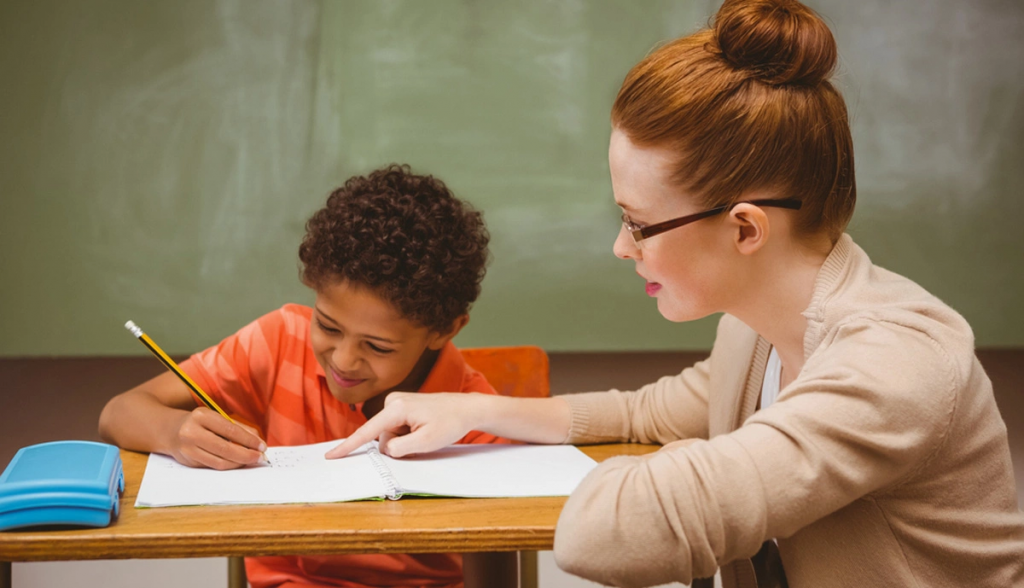Studying in school, passing the national exams, getting into college, doing an undergraduate, going to work: All these are admittedly different phases of life and they all harbour different emotions, meanings and at each stage the same person would have evolved to become a better version of themselves.
Parents have the best interest at heart for their children and every parent cope with the “stress” of guiding their children the “right way” in different methods. Some parents feel compelled to stay away as much as possible from the academic life of their child (while only managing the administrative part of it: school fees, tuition fees, etc.). These parents feel that they should give their child the freedom and breathing space to let them be the way they want to be and at times, the distance may prove to be a better solution for an unsteady parent-child relationship as well.

Source: Medium
On the other hand, we have the typical parents who adopt the helicopter parenting strategy though they deny of it when being asked if they are guilty of adopting that strategy. From putting children through enrichment classes, extracurricular classes, tuition classes, monitoring their homework, tracking the exam scores and drawing bar charts out of them, these helicopter parents monitor their child every step of the way and it becomes exhausting at some point in time for both parents and their children (especially the children!).
So, a question then arises: Can a parent be an active participant in their child’s academic journey without being too intrusive?

Source: Indiatvnew
Fortunately, the answer to that is a YES. Parents need to learn how to strike the balance. Similar to how a team of colleagues work together to get a company project done successfully, parents need to contribute and collaborate with the children in ways which are subtle and effective. This way, children will have the much-needed breathing space which allows them to be stress-free and to perform well to the best of their ability.
Here are some ways parents can accomplish this!
HAPPY MEAL
It is odd to start talking about food when we are actually discussing about academics. Well, you’ll be surprised how intricately they are both tied together. The primary source of energy for human beings comes through food and as a matter of fact, the brain as a single organ consumes almost 20% of the body’s energy at a resting state.
For children, nutrition is of paramount importance to perform well in their academics as lots of intricate processes such as memory formation, development of cognitive skills, higher-order thinking and communication skills take place. The formation of new neural networks in the brain is an energy-intensive process and in order for this to occur in an effective and healthy way, your child does not need energy drinks and vitamin supplements; your child needs nutritious home-cooked food.
The sad reality is that when both parents of the household are working, they think that the best thing they can do it to stock up the kitchen pantry with cup noodles, packets of chip and biscuits and the refrigerator with soft drinks. Parents also make a grave mistake of allowing their child to buy their own lunch after school wherever they like (children certainly do not make the best healthy food choice by themselves!). Children need a healthy meal when they are back from school which will rejuvenate their mind and body; junk food will serve to only do damage to the body.

Source: Corpottemoms
According to the Society for Neuroscience, recent studies reveal that diets with high levels of saturated fats actually impair learning and memory; and this certainly not what we want. Parents should make an effort to possibly cook a nutritious meal in the morning before leaving for work and store it appropriately so that their children can come home to a healthy meal after school. The essential amino acids, vitamins, minerals and proteins from food can never replace artificial supplements!
TUITION
It’s always either extremes and never the middle ground: Parents get worried out of proportion and put their child into several tuition classes hoping that one of them will save the grades, or, parents are in denial that their child needs help as they claim that their child is “too smart and doesn’t need tuition”.
Going to tuition is not a sign of weakness or a “lack of smartness” of the child, and children’s schedule doesn’t need to be packed with tuition classes to get their A grades as well.

Source: Aleteia
Decisions have to be made rationally based on the need. Neither should decisions be made impulsively out of worries, nor should one lack proactiveness due to self-denial. Parents need to effectively communicate with the child as to how they feel about studies and examinations.
If help is needed, further options can be discussed such as, whether group tuition is better or private one-to-one tuition is better, or about which subject needs more attention, so on and so forth.

Should your child be struggling, there isn’t a need to worry as beyond a shadow of a doubt, there are many tuition agencies that provide tutoring services for various everyone of all education level, be it secondary school maths tuition or primary school science tuition.
CONVERSATION
Parents often feel compelled to ask about every upcoming test and about every past test grades. A piece of advice all the parents out there: Control your urge to ask those nagging questions! Children dislike being asked such questions all the time and it gets on their nerves especially when the only topic of discussion over the dinner table is about how they could have done better for that pervious math test.

Source: hawaiipacifichealth
There is so much more happening in school other than tests and examinations and schooling is not just about studying; it’s about building healthy friendships, learning the right from wrong and learning about their own strengths and weaknesses. Children crave for the love and attention from their parents in their years of growing up and should they not be given that love and attention, children will seek that elsewhere which often does not end up well.
Parents need to encourage their children to uninhibitedly ask questions and ask for suggestions and it is essential to assure them that decisions will be made together and never forced upon!
YOUR TAKEAWAY…
Like how a single grain of rice can tip the scale, your words and actions as a parent, no matter how small, will make a huge difference. It is certainly not an easy journey to be a parent but the effort will pay off one day when your children have grown up to be independent adults yet remain grounded and grateful for all our support and encouragement since day 1. After all, a garden of roses always comes with its own prickly thorns.
